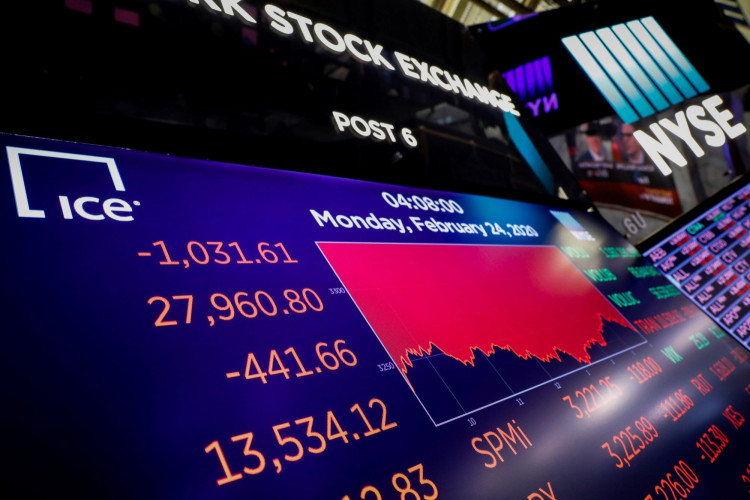The Wall Street rally indicated by higher futures Tuesday fizzled as stocks Wednesday took another beating, again on fears the virulent Covid-19 outbreak will quell U.S. economic growth after it strikes the country.
The damage to the 30-stock Dow Jones Industrial Average only came to 123.77 points Wednesday compared to the more than 1,000 point plunge on Monday and a 900 point loss Tuesday. The short-lived rally Wednesday saw the Dow rise to more than 400 points but plummet later as news poured in about the rapid spread of Covid-19 in Europe and in Asia outside China.
The Dow closed 123.77 points lower, or 0.5%, at 26,957.59. It earlier rose as much as 461.42 points, or 1.7%, before beginning as slide that lasted until well after the closing bell at 4:30 p.m. The S&P 500 fell 0.4% to 3,116.39 after rallying more than 1%. The tech-heavy NASDAQ Composite, which is under the most pressure among all three indices, inched forward to end at just 0.2% at 8,980.77 after rising as much as 2%.
The Walt Disney Company was the worst-performing Dow stock. It traded 3.4% lower after long-time CEO Bob Iger abruptly advanced his resignation to Tuesday. Iger has led Disney for the past 15 years, transforming the then moribund company into the country's leading movie firm due to his acquisitions of Marvel Studios and the Star Wars franchise, among others.
Energy, utilities and real estate dragged the S&P 500 lower. Energy fell nearly 3% while utilities and real estate both lost more than 0.8%. Exxon Mobil and Chevron fell more than 2% each.
Investors continued to flee equities for Treasuries Wednesday. The 10-year Treasury yield dropped to1.3% -- an all-time low -- after lingering at1.36% earlier in the day. Analysts said the earlier uptick in yields somewhat eased concerns Covid-19 will plunge the globe into an economic recession.
The bond yield plunge was triggered by statements from the U.S. Centers for Disease Control and Prevention (CDC) Tuesday Covid-19 now has the potential to transform into a global pandemic.
Some analysts now surmise that if the Covid-19 outbreak does transform into a pandemic and extends into summer, the U.S. is looking at a recession. Right now, a market correction of anywhere from 10% to 15% might already be in the works.
"Unfortunately, I think this is going to turn into a full-blown correction," said David Bianco, chief investment strategist for the Americas at DWS, to CNBC." "It's a material impact to our earnings outlook and it's probably going to be another year of flattish earnings growth."
There were earlier positive indications Wednesday's trading might break the two-day loss string. Before noon Tuesday, Dow futures rose 177 points, hinting at an implied opening gain of 236.54 points Wednesday. The S&P 500 and NASDAQ futures also rose, indicating opening gains. There was no guarantee, however, the opening gains could be sustained as the day went on, which was exactly what occurred Wednesday.






